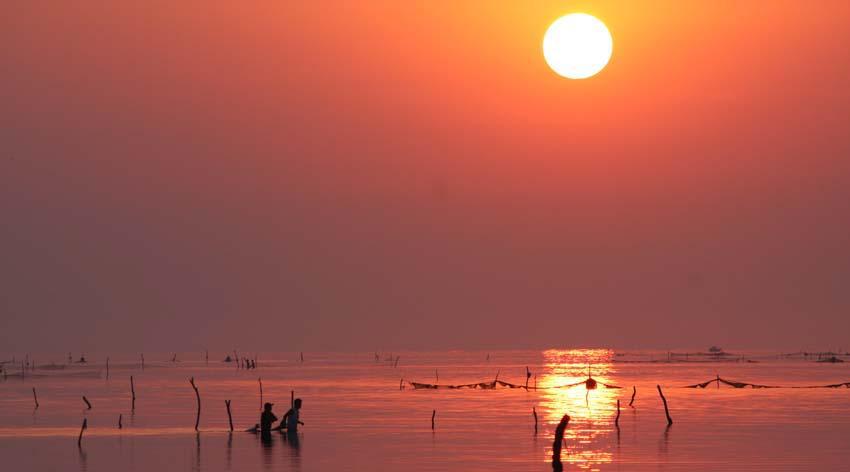Alejandro Espinoza-Tenorio
This project aims to rescue and use the traditional knowledge of the ancient fishermen (who are dying) to improve the governmental fisheries management plan trough a higher public participation process.

Sunrise, Santa María del Mar.
Fisheries’ in Mexico are threatened. The government has been promoting co-management initiatives recently. We propose a consensus –building process to support the spatial assignation of use rights in local fisheries in the Huave Lagoon System (HLS). This lagoon was selected because it provides an important attribute to research: it has been historically used by ethnic groups where fishermen have competed for resources but, until recently, it has been demonstrated that fisheries and marine environment have been preserved. Old fishermen are dying so we need to rescue their valuable knowledge.
The lagoon needs an effective fishery management adapted to the local environmental and socioeconomic conditions before the strong growth of the fishery sector together with local and regional environmental impacts worsen. Cultural diversity (two Pre-Hispanic cultures: Huaves and Zapotecas), ethnic management practices, and wealth of environmental traditional knowledge prevail in the Huave system. Therefore, there is a need to update spatial assignation of use rights by a consensus-building co-management process to get the stakeholders support. We like to take the recent fact that the actual Mexican Fishery Law incorporates fisheries co-management plans with a novel characteristic: the consideration of traditional administration systems in the decisions making process. We propose the use of Social Science techniques to gather traditional knowledge about fisheries (resources, distribution areas, fishing gears, etc.) and ecosystem dynamics (direction and periodicity of currents and winds, climate change, etc.) to design an inclusive consensual spatial assignation representing the actual different social interests in the HLS.
Since our research is part of a workgroup dealing with conceptual and methodological discussions regarding co-management strategies in Mexico, we expect to respond questions such as: Which part of the Traditional Knowledge is potentially useful to take nature conservation decisions? Could Traditional Knowledge be integrated into modern coastal zone management?
As well, obtained results could be used in other third worldwide coastal lagoons.